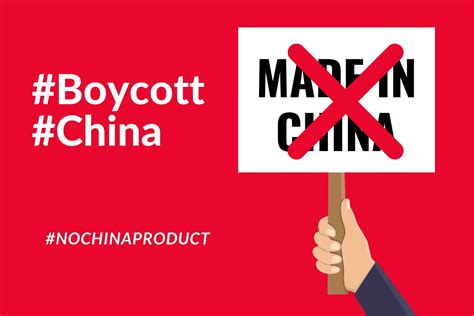#IsBoycottChina a good Idea?
I find this very amusing that every year some or the other way Indian people start trending boycott China, and this time it all started with boycott Chinese apps (i.e. TikTok). But are we doing anything apart from boycotting? Are we focusing on the right things so that we don’t have to trend boycott China every year?
India is notorious when it comes to banning. What is it this year you ask? Indians are going after the Chinese products, particularly TikTok, the number one trending app. Is boycotting the right thing to do?
Let's put this thing in perspective,
"Imagine you are a deer. You have essentially only four things to do during the day: sleep, eat, avoid being eaten and socialise (by which I mean mark a territory, pursue a member of the opposite sex, nurse a fawn, whatever). There is no real need to do much else. Now imagine you are a human being. Even if you only count the basic things, you have rather more than four things to do: sleep, eat, cook, dress, keep house, travel, wash, shop, work … the list is virtually endless. Deer should, therefore, have more free time than human beings, yet it is people, not deer, who find the time to read, write, invent, sing, and surf the net. Where does all this free time come from? It comes from exchange and specialisation and from the resulting division of labour. A deer must gather its own food. A human being gets somebody else to do it for him, while he or she is doing something for them — and both win time that way. Self-sufficiency is therefore not the route to prosperity."
These excerpts are taken from the popular science book "The Rational Optimist, from Matt Ridley". And the book makes some good arguments. We all are reliant on each other and specialize in one thing. Just imagine, a situation where a person needs to do everything like farming, drill down the oil, constructing, etc. I don't think anyone will agree hence we required other people to do a few things for us so that we can have free time to laugh, read, and be with family and this is not restricted to national borders.
Now let's understand why China is leading in manufacturing and what other countries are lacking. China has been building and focusing on manufacturing, value chain, and encouraging local producers since they joined the World Trade Organization in 2001. They emerged as a leader in manufacturing and contribute more than the US, Germany, the UK, and South Korea combined. Every country directly or indirectly depends on China for the smallest of things, not only India. China has grown at a CAGR 12.8% between 2001-07, which is 9 times more than the US. And they were able to do all this by focusing on their "cost structure". Firstly, they incentivized local producers and suppliers by providing cheap labor, restricting competition from foreign companies, limited FDI, etc. This helped China to build a strong base for big companies like Apple, Maruti, etc. Secondly, due to “Dense Regional Manufacturing Ecosystems”, they had built a very strong supply chain that it would be tough to beat in global suppliers. Their value chain is in the form of a cluster where all the sub-industries are linked to each other. For example, for automobile manufacturers, China has dedicated the entire region for raw materials, assembly units, skilled laborers, power, etc. because of which manufacturers don't even have to spend the money on transportation. It is so well connected that it brings down costs immensely.
To simply put, we cannot boycott China that easily and need to think beyond the stop using Chinese apps. Also, just boycotting software or hardware will not solve the problem and we cannot attain the stated objective. But if this boycott helps a little bit to boost the morale of local manufacturers then we should pursue strongly. But most importantly, we need to boycott in the right way, we need to incentivize the local producers, provide infrastructure (i.e. raw materials, transportation at a lower cost, etc.), encouraging startups, etc. so that we can have alternatives before boycotting China. Due to COVID-19, the Government kept aside ₹ 60,000 Crores to help and incentivize local producers to stay afloat and fight big giants. This is how you reduce dependencies, and this is a way to compete with China, not just by boycotting.
Another way to support local producers is “Privatization” because Government policies are not effective as it should be. We have seen in past the role privatization played in Indian sectors and it could benefit the agriculture sector also without a doubt. Recently, Madhya Pradesh introduced a new system called “Private mandi” for farmers to sell their goods. It will allow them to sell their produce at more competitive prices and without going to the mandi.
The last thing I want to highlight is that boycott is not going to help any country. And as per the research conducted by “Kilian Heilmann, The Effectiveness of International Trade Boycotts” in 2014 on previous boycotts, the boycott of Danish goods by Muslim and the Chinese boycott of Japanese goods. Boycott could result in a one-time reduction in trade and hamper the trade relation but eventually, it will return in the future.



Comments
Post a Comment